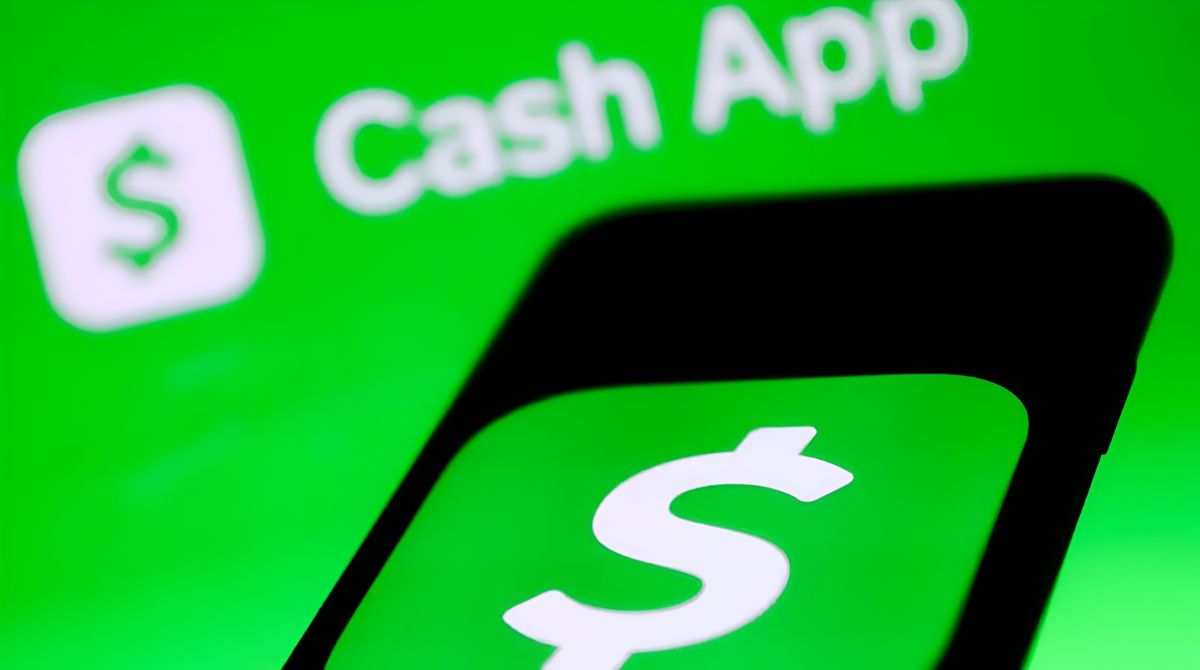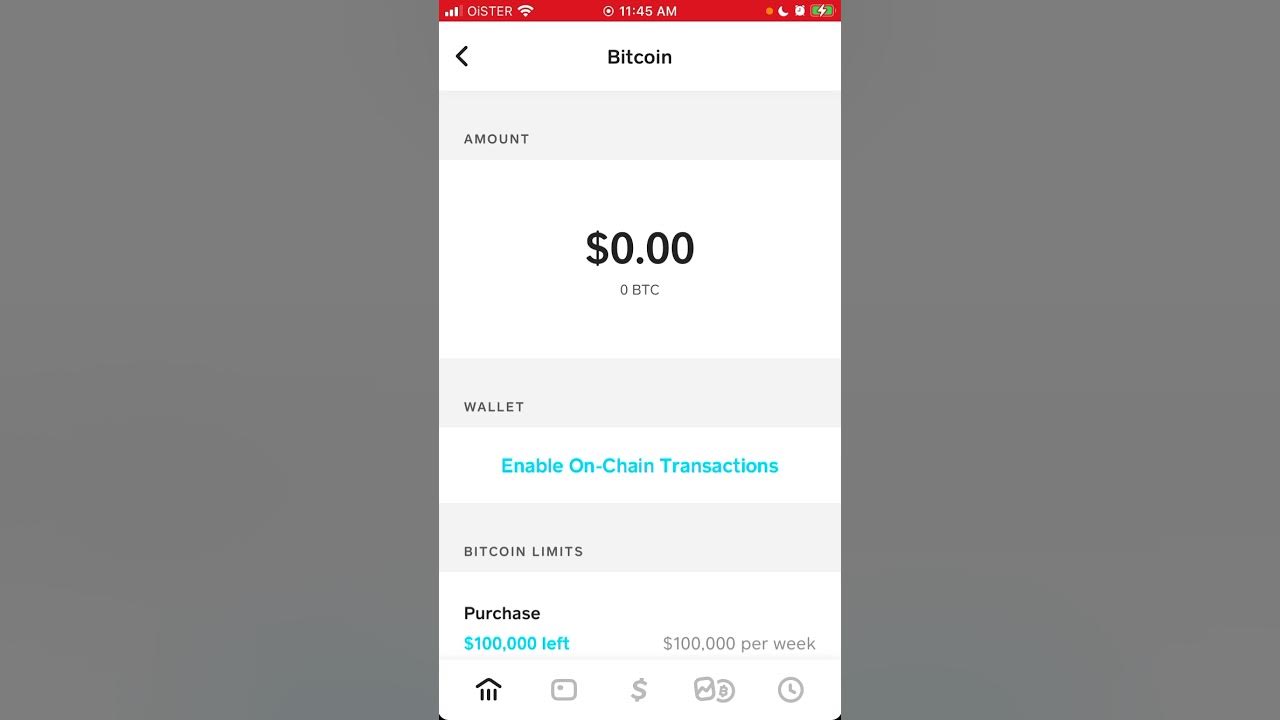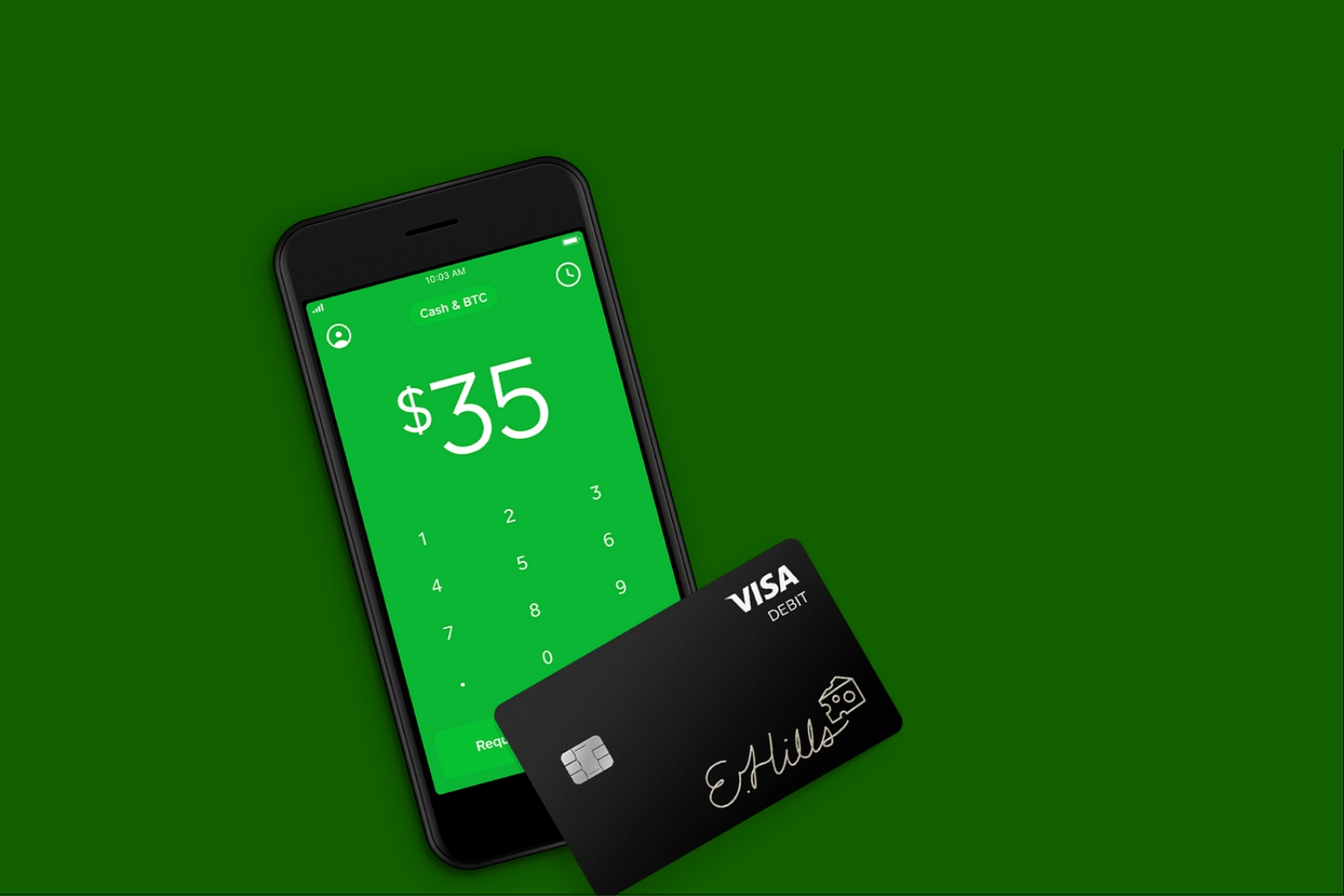Introduction
Welcome to the world of fintech apps, where technology meets finance to revolutionize the way we manage our money. In recent years, the rise of financial technology has transformed the financial industry, offering innovative solutions that make financial services more accessible, convenient, and efficient for individuals and businesses alike.
A fintech app refers to a mobile application that leverages technology to provide various financial services, including banking, budgeting, investing, payments, and more. These apps are designed to simplify and streamline financial processes, empowering users to take control of their finances, make informed decisions, and achieve their financial goals.
With the rapid advancement of technology and the increasing adoption of smartphones, fintech apps have gained tremendous popularity and disrupted traditional financial institutions. Gone are the days when you had to visit a physical bank branch or consult a financial advisor in person. Fintech apps have made it possible to access financial services anytime, anywhere, with just a few taps on your mobile device.
The convenience and accessibility offered by fintech apps have made them an indispensable tool in our everyday lives. Whether you want to track your expenses, save for a vacation, invest in stocks, or send money to a friend, there’s a fintech app that can cater to your specific needs.
Moreover, fintech apps have democratized finance, eliminating barriers and empowering individuals who were previously excluded from the traditional banking system. With just a smartphone and an internet connection, anyone can open a bank account, apply for loans, or invest in financial products, regardless of their location or socioeconomic status.
In this article, we’ll explore the fascinating world of fintech apps, their impact on the financial industry, the benefits they offer, popular apps in the market, how to choose the right app for you, the challenges and risks involved, and future trends to watch out for.
Definition of Fintech App
Before delving deeper into fintech apps, let’s start by defining what exactly a fintech app is. A fintech app, short for financial technology application, refers to a software application that combines finance and technology to offer a wide range of financial services and solutions. These apps are designed to leverage advancements in technology, such as mobile devices, artificial intelligence, and big data, to transform the way people manage their finances.
At its core, a fintech app aims to provide users with seamless and convenient access to financial services, usually through a mobile device. These apps can offer banking services like checking account balances, making payments, and transferring funds. They can also provide investment services, allowing users to invest in stocks, bonds, or cryptocurrencies. Additionally, fintech apps can offer personal finance tools, such as budgeting, expense tracking, and financial planning.
Fintech apps typically boast user-friendly interfaces, making it easy for individuals of all technical backgrounds to navigate and utilize their features effectively. They often employ secure encryption and authentication protocols to ensure the safety and privacy of users’ financial information.
What sets fintech apps apart from traditional financial institutions is their ability to offer innovative, customer-centric solutions. These apps are agile and quickly adapt to changing consumer needs and preferences. For example, they may introduce features like digital wallets, peer-to-peer lending, robo-advisory services, and decentralized finance to cater to the evolving demands of their users.
It’s important to note that fintech apps can be developed by traditional financial institutions, such as banks or credit card companies, or by independent startups specializing in financial technology. Either way, the aim is to provide users with efficient and personalized financial services that surpass the limitations of traditional brick-and-mortar establishments.
Ultimately, fintech apps have revolutionized the way we interact with money and navigate the financial landscape. They have democratized financial services, making them more accessible to a larger population. Whether you’re a tech-savvy investor or someone looking to gain better control over your finances, a fintech app can be a powerful tool to help you achieve your financial goals.
How Fintech Apps Are Changing the Financial Industry
Fintech apps have emerged as disruptors in the financial industry, challenging traditional financial institutions and transforming the way financial services are delivered. Let’s explore how these apps are reshaping the financial landscape:
1. Enhanced Accessibility: Fintech apps have made financial services more accessible than ever before. They break down geographical barriers and eliminate the need for physical visits to banks. Now, individuals can access their accounts, make payments, and transfer funds from the convenience of their smartphones, anytime, anywhere.
2. Improved Efficiency: Fintech apps streamline financial processes, saving users time and effort. Features like automatic expense tracking, mobile check deposits, and instant fund transfers eliminate the hassle of manual paperwork and long waiting times. This improved efficiency translates to improved customer experiences and increased satisfaction.
3. Personalization and Customization: Fintech apps leverage user data and advanced algorithms to deliver personalized financial solutions. Utilizing machine learning and artificial intelligence, these apps can analyze spending patterns, provide tailored recommendations, and offer customized investment portfolios. The ability to personalize the user experience helps individuals make informed financial decisions based on their unique circumstances.
4. Disintermediation: Fintech apps disrupt traditional intermediaries in the financial industry. By cutting out the middlemen, such as brokers or financial advisors, fintech apps reduce costs and offer more direct access to financial services. This disintermediation leads to lower fees, enabling individuals to invest or transact with smaller amounts of money.
5. Encouraging Financial Inclusion: Fintech apps play a vital role in promoting financial inclusion. With traditional banks often requiring minimum balances or extensive documentation, many individuals are left without access to basic financial services. Fintech apps solve this problem by offering affordable and straightforward alternatives, expanding access to banking, lending, and investment opportunities, particularly for underserved populations.
6. Democratizing Investment: Fintech apps are democratizing the investment landscape, allowing individuals with limited resources to participate in previously exclusive markets. These apps offer fractional shares, robo-advisory services, social trading platforms, and educational resources, empowering novice investors to enter the market with confidence and diversify their portfolios.
7. Embracing Innovative Technologies: Fintech apps are at the forefront of embracing emerging technologies, such as blockchain, artificial intelligence, and biometrics. These technologies enhance security, reliability, and speed of financial transactions, ensuring that users’ data and funds are protected. Moreover, they enable the development of decentralized finance (DeFi) applications, providing individuals with greater control over their financial activities.
Overall, fintech apps are driving significant changes within the financial industry, offering innovative solutions that cater to the evolving needs and preferences of consumers. As these apps continue to evolve and mature, they will likely continue to reshape the way we manage our finances and interact with the world of money.
Benefits of Using Fintech Apps
Fintech apps provide a multitude of benefits that make managing finances easier, more convenient, and more efficient. Let’s explore the advantages of using these innovative apps:
1. Convenient Access: Fintech apps enable users to access their financial accounts and perform transactions anytime, anywhere. Whether you need to check your account balance, transfer funds, or pay bills, you can do it all with just a few taps on your mobile device. This convenience eliminates the need to visit physical bank branches or wait in long queues.
2. Enhanced Financial Control: Fintech apps empower individuals to take control of their finances. With features such as expense tracking, budgeting tools, and personalized financial insights, users can gain a comprehensive understanding of their financial habits and make informed decisions. This visibility and control help individuals stay on top of their spending, save money, and achieve their financial goals.
3. Time and Cost Savings: Fintech apps streamline financial processes, saving users valuable time and reducing costs. Automated transactions, digital payments, and mobile check deposits eliminate the need for manual paperwork and visits to physical banks. Additionally, fintech apps often have lower fees and offer competitive exchange rates, resulting in cost savings for users.
4. Real-Time Notifications: Fintech apps keep users informed about their financial activities in real-time. They send notifications for account updates, transactions, and payment reminders, ensuring that users are aware of any changes or pending actions. These real-time notifications help users stay organized and manage their finances effectively.
5. Seamless Integration: Fintech apps seamlessly integrate with other financial tools and services. For example, they can connect with external bank accounts, investment platforms, or expense management apps, consolidating all financial information in one place. This integration enables users to have a holistic view of their financial landscape, allowing for better planning and decision-making.
6. Improved Security: Fintech apps prioritize the security and privacy of user information. They employ robust encryption protocols, multi-factor authentication, and biometric authentication methods to safeguard sensitive data. Additionally, these apps often provide features like in-app card controls and real-time fraud alerts, giving users peace of mind in their financial transactions.
7. Access to a Wide Range of Financial Services: Fintech apps offer a diverse array of financial services within a single app. From banking and investing to budgeting and lending, these apps provide a comprehensive suite of financial tools and solutions. Users can explore different services and customize their financial journey based on their unique needs and goals.
8. Financial Education: Many fintech apps provide educational resources and guides to help users improve their financial literacy. These resources range from articles and blogs to interactive tutorials and financial planning tools. By offering financial education, fintech apps empower users to make informed decisions and develop healthier financial habits.
Ultimately, fintech apps deliver a range of benefits that empower individuals to manage their finances efficiently and make smarter financial decisions. As technology continues to advance, fintech apps will likely enhance their features and services, further enhancing the user experience and transforming how we interact with money.
Popular Fintech Apps
The ever-growing fintech industry has spawned numerous innovative apps that cater to various financial needs. Here are some of the popular fintech apps revolutionizing the way we manage our money:
1. Mint: Mint is a comprehensive personal finance app that allows users to track their expenses, create budgets, and get a holistic view of their financial health. It automatically categorizes transactions, provides spending insights, and sends bill reminders, helping users stay on top of their finances.
2. PayPal: PayPal is a widely used digital payments app that enables users to send and receive money securely. It allows individuals to make online purchases, transfer funds, and even create a virtual debit card linked to their accounts. PayPal is accepted by numerous merchants worldwide, making it a convenient way to transact online.
3. Robinhood: Robinhood disrupted the investment landscape by offering commission-free trading for stocks, options, and cryptocurrencies. The user-friendly app appeals to both beginner investors and seasoned traders, providing real-time market data, customizable watchlists, and educational resources.
4. Acorns: Acorns is an app that simplifies investing by automatically rounding up everyday purchases and investing the spare change. It offers a seamless way for individuals to start building an investment portfolio with small and regular contributions. Acorns also provides automated portfolio management and educational content.
5. Stripe: Stripe is a popular platform that enables businesses to accept online payments securely. It offers a range of tools and services for businesses, including payment processing, subscription management, and fraud prevention. Stripe’s robust infrastructure and developer-friendly API make it a trusted choice for e-commerce businesses.
6. Venmo: Venmo is a social payments app that allows users to send and receive money from friends and family. It has gained popularity for its social feed feature, where users can like and comment on their friends’ transactions. Venmo also offers a debit card for easy access to funds.
7. Ally: Ally is a digital bank that provides a suite of financial services, including checking and savings accounts, CDs, and investment options. It offers competitive interest rates, no monthly fees, and 24/7 customer support. Ally’s mobile app and online banking platform make it convenient for users to manage their accounts.
8. Stash: Stash is an app that simplifies investing by providing users with a variety of investment options curated for their interests and goals. It offers fractional shares, educational content, and tools to help individuals learn about investing while building their portfolios.
These are just a few examples of popular fintech apps that have gained significant traction in the market. However, the fintech app landscape is continuously evolving, with new apps and features being introduced regularly. It’s important to explore different apps and evaluate their features, security measures, and compatibility with your financial needs to find the ones that best suit your requirements.
How to Choose the Right Fintech App for You
With an abundance of fintech apps available in the market, choosing the right one for your financial needs can be overwhelming. Here are some factors to consider when selecting a fintech app:
1. Identify Your Financial Goals: Before evaluating the available options, determine your financial objectives. Are you looking for a budgeting app to track your expenses? Do you want to start investing? Understanding your goals will help you narrow down your search and find an app that aligns with your specific needs.
2. Consider Security Measures: Financial apps handle sensitive personal and financial information, so security should be a top priority. Look for apps that employ advanced security measures, such as multi-factor authentication, encryption, and secure data storage. Additionally, read reviews and check if the app has a history of security breaches.
3. Evaluate User Experience: A user-friendly interface and intuitive navigation are crucial for a positive experience. Test the app’s features and functionalities to ensure they meet your expectations. Pay attention to how easy it is to set up an account, make transactions, and access support resources.
4. Check Compatibility: Ensure that the fintech app is compatible with your mobile device’s operating system (iOS or Android). Also, verify if it integrates with other financial tools or platforms you use, such as your bank or investment accounts, to facilitate seamless information sharing.
5. Research App Reviews: Reading reviews from users and reputable sources can provide valuable insights about an app’s performance and reliability. Look for feedback related to customer support, app stability, and the overall user experience. Consider both positive and negative reviews to make an informed decision.
6. Assess Fees and Cost Structure: Some fintech apps may have fees associated with certain services or features. Review the app’s fee structure and assess how it aligns with your financial goals and budget. Compare similar apps to determine which offers the most value for your money.
7. Consider Customer Support: A reliable customer support system can be crucial if you encounter any issues or have questions about the app. Look for apps that offer multiple support channels, such as phone, email, or live chat, and check if their customer service is responsive and helpful.
8. Explore Additional Features: Consider any additional features or tools that may be beneficial to you. For example, if you’re interested in learning about finance or investing, look for apps that offer educational resources or have built-in financial planning tools.
It’s important to note that personal preferences and individual needs vary, so what works for one person may not work for another. Take the time to evaluate your options and even try out a few apps before committing to one. Remember, finding the right fintech app can greatly enhance your financial management, so it’s worth investing time and effort into making the best choice for your unique circumstances.
Challenges and Risks of Using Fintech Apps
While fintech apps offer numerous benefits, it’s important to be aware of the potential challenges and risks associated with using these apps. Here are some key considerations:
1. Security Concerns: Fintech apps handle sensitive financial information, making them potential targets for cyberattacks. It’s crucial to choose apps that prioritize security measures like encryption, secure data storage, and authentication protocols. However, there is always a risk of data breaches or hacking attempts, so it’s important to regularly update your app and follow best practices in maintaining data security.
2. Compliance and Regulation: Fintech apps must adhere to relevant regulations and compliance standards to safeguard users’ financial information. However, navigating through complex legal frameworks can be challenging for some apps, particularly smaller startups. It’s essential to ensure that the app you choose is compliant with applicable regulations and demonstrates a commitment to data protection.
3. Technical Issues: Fintech apps rely on technology, and like any technology, they are prone to technical glitches or system failures. This can impact the app’s functionality, cause delays in transactions, or result in the loss of data. It’s advisable to choose established and well-maintained apps with a track record of reliable performance and responsive support in resolving technical issues.
4. Dependency on Internet Connectivity: Using fintech apps typically requires a stable internet connection. In areas with poor or unreliable internet connectivity, this can pose a challenge. It’s important to consider the availability and quality of internet service in your location and evaluate whether it may impact the app’s usability and accessibility for you.
5. Privacy Concerns: Fintech apps collect and process personal and financial data as part of their service. While reputable apps have privacy policies in place to protect user information, there is still a risk that data may be shared with third parties or used for targeted advertising purposes. It’s essential to review the app’s privacy policy and understand how your data will be handled.
6. Lack of Human Interaction: Fintech apps provide convenience and efficiency, but they may lack the personal touch of human interaction found in traditional banking or financial advisory services. Some individuals may prefer the reassurance and guidance that comes with face-to-face interactions. It’s important to assess whether the level of human support provided by the app meets your needs and comfort level.
7. Changing Market Conditions: Financial markets are dynamic, and the environment in which fintech apps operate can change rapidly. This introduces risks related to market volatility, regulatory changes, or economic fluctuations. It’s important to stay informed about the financial landscape and understand the potential impact of these changes on your investments or financial decisions.
Though fintech apps offer numerous advantages, users should be aware of the potential challenges and risks involved. By exercising caution, staying informed, and choosing reputable apps with robust security measures and reliable support, users can mitigate these risks and enjoy the benefits of fintech apps.
Future Trends in Fintech Apps
The fintech industry is constantly evolving, driven by advancements in technology and changing consumer preferences. Here are some key future trends that we expect to see in fintech apps:
1. Artificial Intelligence (AI) and Machine Learning: AI and machine learning technologies will continue to play a significant role in fintech apps. These technologies can assist with tasks like personalized financial advice, fraud detection, risk assessment, and portfolio management. AI-powered chatbots may also become more common, providing instant customer support and enhancing user experiences.
2. Open Banking: Open banking, enabled by emerging regulations and technology, will likely gain traction in fintech apps. Open APIs will allow users to securely share their financial data with multiple third-party apps, enabling a more holistic view of their finances and personalized financial solutions. This will foster increased collaboration among fintech apps, traditional financial institutions, and other financial service providers.
3. Biometrics and Enhanced Security: Fintech apps will continue to enhance security measures, with a shift towards biometric authentication methods such as facial recognition and fingerprints. This provides users with a more secure and convenient login experience, reducing reliance on traditional passwords and decreasing the risk of unauthorized access.
4. Blockchain and Cryptocurrencies: Blockchain technology and cryptocurrencies will continue to impact fintech apps. We may see more apps integrating blockchain for secure and transparent transactions, as well as offering support for cryptocurrencies like Bitcoin, Ethereum, and stablecoins. This could expand access to decentralized financial services and promote new methods of payment and remittances.
5. Digital Wallets and Contactless Payments: As mobile payments and contactless transactions gain popularity, fintech apps will likely offer more advanced digital wallet features. These wallets will support various payment methods and technologies, enabling users to make seamless payments using their smartphones, smartwatches, or other connected devices.
6. Robo-Advisory: Robo-advisory services, which utilize algorithms to provide automated investment advice, will continue to evolve. Fintech apps may enhance their robo-advisory capabilities by incorporating advanced analytics, machine learning, and user preferences to offer more personalized investment strategies and recommendations.
7. Financial Inclusion and Emerging Markets: Fintech apps will play a crucial role in driving financial inclusion, particularly in emerging markets where traditional banking infrastructure is limited. These apps will focus on offering basic financial services, microloans, and insurance products tailored to the unique needs and challenges of underserved populations.
8. Integrations with Internet of Things (IoT) Devices: Fintech apps may integrate with IoT devices like smart homes, wearables, and connected cars to provide personalized financial insights, automate savings based on spending patterns, or detect potential fraudulent activities. This integration will enhance the overall financial experience and provide users with more control over their financial well-being.
As technology continues to advance and consumer demands evolve, fintech apps will adapt and innovate to deliver even more sophisticated and tailored financial services. It’s an exciting time for the fintech industry, with endless possibilities for enhancing financial management, improving access to financial services, and transforming the way we interact with money.
Conclusion
Fintech apps have ushered in a new era of financial services by leveraging technology to provide convenient and accessible solutions. From banking and budgeting to investing and payments, these apps have revolutionized the way we manage our money. The benefits they offer, such as convenience, enhanced financial control, and improved efficiency, have made them indispensable tools in our fast-paced digital world.
As we’ve explored, fintech apps have changed the financial industry by offering enhanced accessibility, personalized solutions, and disintermediation. They have democratized finance and enabled individuals of all backgrounds to access financial services and invest in previously exclusive markets. In addition to their current benefits, we also anticipate several exciting trends in the future, including advancements in artificial intelligence, open banking, biometrics, blockchain integration, and expanded financial inclusion.
However, it’s important to consider the challenges and risks associated with using fintech apps. Security concerns, compliance and regulation, technical issues, and potential privacy risks are factors that users should remain mindful of. By being aware of these challenges and selecting reputable apps that prioritize security measures and offer reliable support, users can mitigate risks and confidently utilize fintech apps for their financial needs.
As fintech continues to evolve, it’s crucial for users to stay informed about the latest developments, evaluate their options, and choose apps that align with their financial goals and preferences. Each individual has unique needs and preferences, and it’s important to find the right fintech app that suits your specific requirements.
The fintech industry is poised for further growth and innovation, with endless possibilities for enhancing financial management, promoting inclusivity, and transforming the way we interact with money. By embracing technology and leveraging the power of fintech apps, individuals can take control of their finances, make informed decisions, and embark on a path towards financial well-being.

























